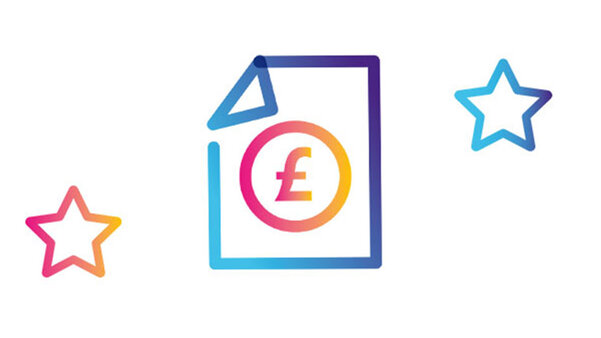Raffles

A quick, easy guide to raffles
Everybody loves a raffle! They’re a great way to raise money and can be part of almost any fundraising event, but some do need a licence. This guide sets out the basics and gives you the tools you need.
Types of raffles
Small raffles: This is the simplest type of raffle to organise and does NOT need to be registered with the Gambling Commission or local authority. To qualify as a small raffle, your raffle must meet these criteria:
- Tickets are only sold on the day of the draw.
- Tickets should not cost more than £1.
- A maximum of £250 can be spent on prizes.
- Donated prizes can be accepted.
- No money prizes can be offered except gift vouchers.
- All proceeds must be donated to the charity.
Private raffles: A private raffle does NOT need to be registered either.
- Tickets for this can only be sold to people living or working in the same premises, or who are members of an organisation or club.
- This raffle can only be advertised on the tickets, to members or on the premises.
- All proceeds must be donated to the charity.
Small and large society raffles: These DO need to be registered with your local authority to obtain a licence. It’s important they comply with the Gambling Commission’s requirements.
- Tickets are sold over a period of time and can be sold to the general public.
- The maximum price per ticket is £2.
- Tickets may only be sold to people over the age of 16.
- You must purchase a licence (average cost is £30-£40) for a year with a named promoter.
- You must follow the local authority's rules on raffle administration and what must be printed on tickets.
- Unfortunately, you cannot run a society raffle under the National Autistic Society licence.
Before your event
Prizes
- Don’t buy prizes if you don’t have to - instead kindly persuade people to donate them.
- Create a list of local businesses to contact as well as any large organisations you have links with.
- When asking for prizes, be confident about what you are fundraising for and why. Read up on our charity - find out more about our work on the website.
- Offer something in return – publicity, advertising, event presence, special thanks in person.
- Get written confirmation of any prize terms and conditions including validity dates.
- Choose a varied and suitably-sized selection to appeal to your likely raffle ticket purchaser. Group smaller items together, if appropriate, to make a more desirable prize.
- Set a fundraising target based on how many tickets you can reasonably expect to sell.
How you'll take money
- If you’re holding a small raffle, arrange a cash float for raffle ticket sales.
- Consider setting up an online giving page – so that even if people don’t have cash they can still buy raffle tickets by donating to your page.
- If you are running a society raffle and plan to use volunteers to help distribute tickets, consider how this can be administered and how cash can be retained and banked.
Promote your raffle
- Use social media or local advertising to promote your raffle and be sure to include a summary of prizes to attract positive attention.
On the day
- Attract positive attention if you are running a raffle stall – fancy dress, bright colours, displays or signage.
- Think about what you’ll say to attract ticket purchases, whether this is done in advance or on the day – keep it short and polite. Thank every person for their donation regardless of how many tickets they buy.
After your event
- Pay any costs or fees you have incurred.
- Pay in the money you’ve raised.
- Be sure to thank everyone who bought tickets, volunteered, or provided prizes. If you can do this through a channel with a link to your donation page it could spark extra funds.
- Spread the word of the event’s success on social media and the local press. Ask us for a press release template you can use.
Keep it safe and legal
- Make sure your prizes are safe, reputable and fit comfortably with the aims of the charity.
- Charitable donations that are given in return for something i.e. a potential prize are NOT eligible for Gift Aid. This means that money paid for raffle tickets is NOT eligible for Gift Aid.
- To see full guidelines and advice on holding raffles or if you’re concerned about licensing requirements, contact your local licensing authority or the Gambling Commission.
You may be interested in
- The impact your fundraising will have
- Make your event more autism friendly
- Set up an online giving page
- Risk assessment guide
- Pay in the money you’ve raised
